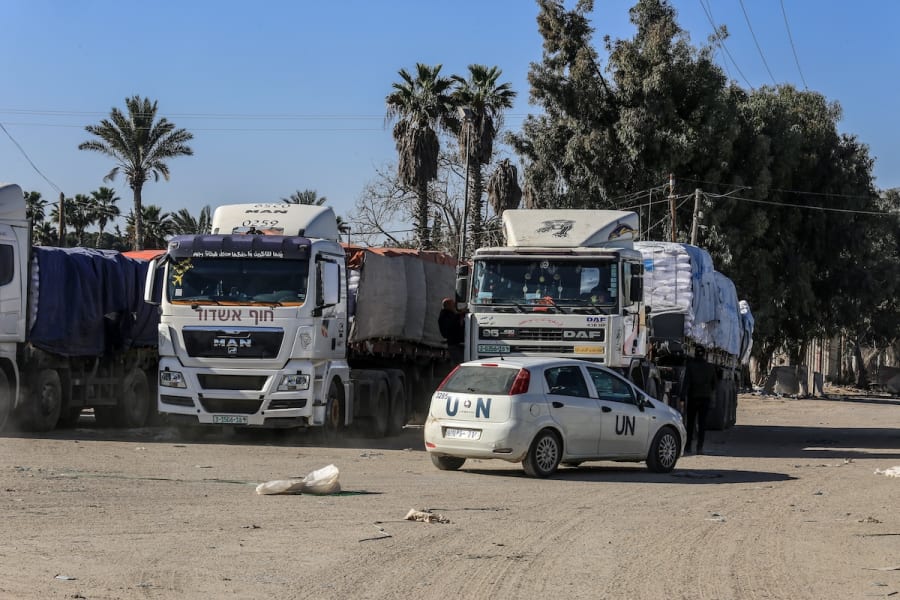Cairo reportedly refuses to cooperate on humanitarian aid delivery through Rafah crossing

The Egyptian government has reportedly declined an Israeli proposal to coordinate the delivery of humanitarian aid to Gaza through the Rafah Crossing, located on the border between Egypt and Gaza.
On Saturday, Alqahera News, run by the Egyptian government, reported that an unnamed senior Egyptian official blamed Israel for the “unacceptable escalation” in the Gaza Strip.
Last week, Hamas terrorists in Rafah killed four young IDF soldiers and wounded 10 more Israelis, in a rocket barrage directed at the Kerem Shalom Crossing. At the time, Egypt did not officially condemn the attack.
On May 7, Israeli forces seized the Rafah Crossing after the War Cabinet greenlighted a limited military operation in the eastern parts of Rafah as part of a wider effort to increase military pressure on Hamas, vis-à-vis the stalled hostage deal negotiations.
The bulk of Hamas’ remaining battalions are believed to be concentrated in the Rafah area. The crossing point is considered strategically important, as Hamas uses it to smuggle weapons and other goods into the coastal enclave.
The latest deadly Hamas rocket attack came shortly after Israel had reopened the Kerem Shalom border crossing to assist in the delivery of humanitarian aid into the Gaza Strip. As a result of this rocket barrage, the crossing had to be closed, and the aid initiative was blocked.
Just hours before the Hamas attack on the border crossing, Israeli Defense Minister Yoav Gallant assessed that the terrorist organization was not genuinely interested in striking a hostage deal with Israel.
“We are seeing worrying signs that Hamas in fact does not intend to go to any agreement with us, which means action in Rafah and the entire Gaza Strip in the very near future,” Gallant told IDF troops.
Israel is concerned that Cairo's reluctance to coordinate humanitarian aid at the border may hinder Israel's military operations against Hamas forces in the region.
The United States and many other governments have emphasized the need to increase humanitarian aid to civilians in Gaza.
White House National Security Council Spokesperson John Kirby warned on Friday: “Every day that [Rafah] crossing is not available and usable for humanitarian assistance, there’s going to be more suffering, and that’s a deep concern to us."
“We urge the Israelis to open up that crossing to humanitarian assistance immediately. That aid is desperately needed, and we urge them… to be as careful, precise, and discriminate as they can.”
The Egyptian government has been opposed to a large Israeli military operation in Rafah, fearing that large numbers of Gazans would enter the Egyptian Sinai Peninsula. This has led to diplomatic tensions between the two nations.
However, in February, Egyptian Foreign Minister Sameh Shoukry told the media that the relationship was not in danger: “A peace agreement between Egypt and Israel already exists, which has been in effect for the past 40 years, and we will continue it.”
Although Egyptian President Abdel-Fattah el-Sisi implemented a zero-tolerance policy towards terrorism, his administration frequently criticizes Israel in public statements, rather than the Hamas terrorist organization, an offshoot of the radical Egypt-based Muslim Brotherhood, which poses a threat to Egypt's secular government.

The All Israel News Staff is a team of journalists in Israel.
You might also like to read this:
















